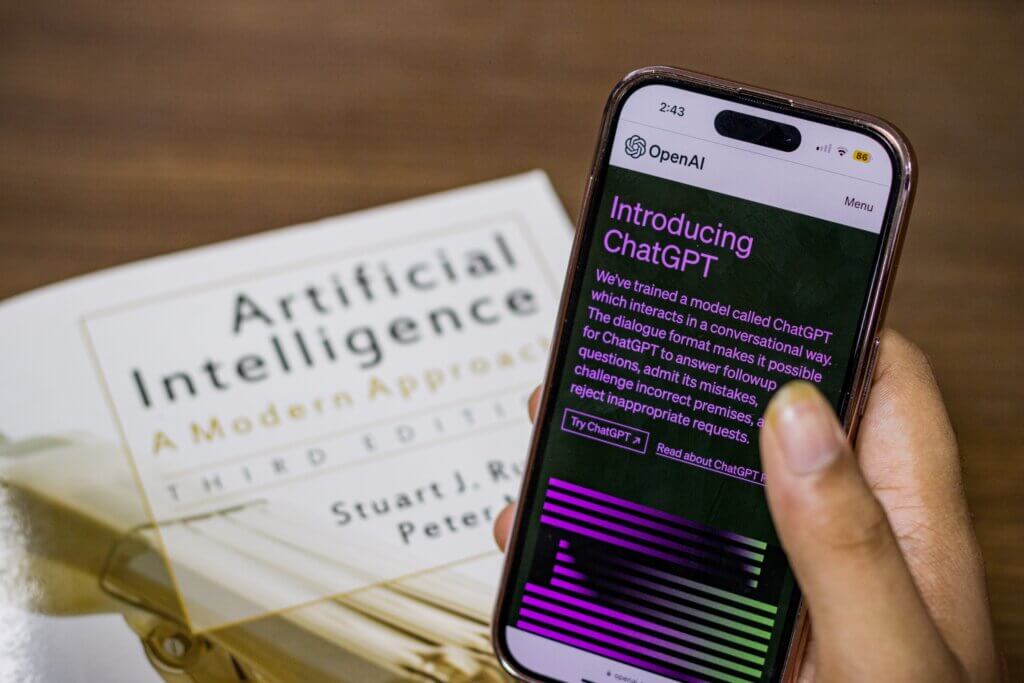Artificial intelligence has taken the spotlight as one of the innovative technologies to implement in our ever-evolving digital age, and its practical application throughout business is growing exponentially.
Before diving into how artificial intelligence (AI) technologies are impacting the business world, particularly its effect on retail, it is important to define the term and provide context. Artificial intelligence is a wide-ranging description that refers to any type of computer software that performs human-like activities which could include learning, planning and problem-solving.
As an analogy, calling specific applications “artificial intelligence” is like calling a car a “vehicle”; while it’s correct, it does not cover any of the specifics.
Artificial intelligence can support retail operations, increasing profits and optimizing business processes. As we know, to achieve the best results in any business you must analyze data – particularly in retail. This is just one of the places where AI technology can help, as it unlocks many opportunities to improve almost every aspect of any retail business. According to a recent report by Statista, “over the next eight-year period, the market for AI in retail is estimated to grow exponentially, reaching 23.32 billion U.S. dollars by 2027.”
AI will shift what retail roles look like, making businesses more efficient, opening the door for businesses to make “smart” staffing and replenishment decisions that optimize labour and replenishment costs, in addition to helping eliminate out-of-stock situations and maximize sales. As technology continues to evolve, retail organizations are increasingly seeking to truly understand how artificial intelligence is reshaping the industry.
Nasscom Insights highlights, “the best thing about using AI in retail is the need to bring autonomy to the operations by converting raw data from sources like IoT and converting the same to actionable details. Also, AI in retail has been constantly used to foster behavioral analytics as well as feed on market demographics in order to improvise business projections.”
The following are some of the principal AI applications for retail to consider:
Inventory Management/Loss Prevention
For numerous reasons, inventory management is hugely important because at its core, it helps you understand what you need, at what level, at what time and at what price. According to Alberto Rizzoli of V7Labs, “Inventory management in retail has been undergoing a digital revolution for the last few years, and now that retailers are starting to use AI, they can better optimize their supply chain, pricing and promotional planning.”
Computer vision systems are used to capture images, before employing image segmentation and object detection algorithms to track items on shelves and carry out an entire inventory scan.
AI technology is spurring self-checkout innovation, offering a secure method of scanning that also helps prevent shoplifting. It can run without any human assistance and gives customers more control over the shopping process. Under the new system, AI authentication will be used to log data on suspicious shoplifters.
AI in retail is creating better insights from the marketplace, consumer, and competitor data by implementing AI business intelligence tools to forecast industry shifts and make proactive changes to a company’s marketing, merchandising, and business strategies. This also impacts supply chain planning, as well as pricing and promotional planning.
Pricing
Predictive pricing is a pricing strategy that uses AI to optimize product pricing based on market demand and competition. It uses data analytics and algorithms to investigate market trends and behavior, then use this information to set prices that are likely to maximize profits. One of the main benefits of predictive pricing is that it empowers businesses to be more reactive to market conditions. By using AI to continuously monitor and analyze market data, businesses can quickly pivot their prices in response to changes in demand or competition. This can help them stay ahead of the curve and remain competitive in a rapidly changing market.
“Computer-vision systems, designed to enable touchless checkout services, can enable supermarket operators a real-time bird’s-eye view of customer reactions to price changes (if reactions are negative, management can make the necessary adjustments),” explains Jordan Fisher, co-founder and chief executive officer of autonomous-checkout software maker Standard Cognition Corp.
Retailers can also use chatbots and virtual assistants powered by AI to engage with customers in real-time and provide personalized product recommendations or answers to questions. This can help retailers upsell by providing customers with information about products they may be interested in. Virtual assistants powered by AI, such as Amazon’s Alexa or Apple’s Siri, can be used to provide personalized product recommendations and answer customer questions. This can help retailers upsell/cross-sell by providing customers with information about products they may be interested in.
Forecasting/Sustainability
A lack of AI forecasting in your business could lead to massive losses in efficiency. Studies have shown that a majority of business planners said the future dominant technology for planning will be artificial intelligence. As the world grows more complex, larger fractions of it will need to be done through AI planning and forecasting simply because the human mind cannot track that level of complexity. Such data forecasting work being done without AI will become rare until it disappears entirely. The sooner a retail business can adopt this technology, the better off it will be.
Artificial intelligence has the potential to make retail operations much more sustainable, while AI forecasting tools help businesses achieve carbon neutrality by monitoring emission rates and promoting recycling.
In consumer packaged goods, AI could turbo-charge efforts to forecast failures and schedule interventions, further reducing downtime and operating costs while improving production yield, states The McKinsey Global Institute.
Optimized Operations/Automation
Artificial intelligence plays a significant role in automating numerous tasks which were once done by humans. This allows workers to spend less time on mundane tasks and more time devoted to customer service. Overall, this process increases efficiency and helps to improve the customer experience.
The presence of computers in the retail industry has allowed businesses to handle more complex tasks, such as customer problem-solving. These advances improve productivity, overall profit, environmental outcomes, and increased sales.
AI-supported systems and IoT devices have come a long way in refining logistics and inventory operations. As well, the retailers are finding applications of IoT technology in improving the distribution and delivery operations to have a real-time check on the supply chain. This is helping retailers meet the quality expectations of the users while gaining on better access to internal operations and extending user support.
Nasscom Insights shared that even when it was mid-pandemic, “90 percent of retail business leaders indicated that their employees are prepared and have the skills for AI adoption, up 47 percentage points from the inaugural KPMG study published in early 2020. 53 percent of business leaders in retail said COVID-19 increased their company’s pace of adoption. It can then be predicted well in advance that AI in retail is going to play a huge role in transforming the retail industry entirely from internal operations to the end-user shopping experience.”



